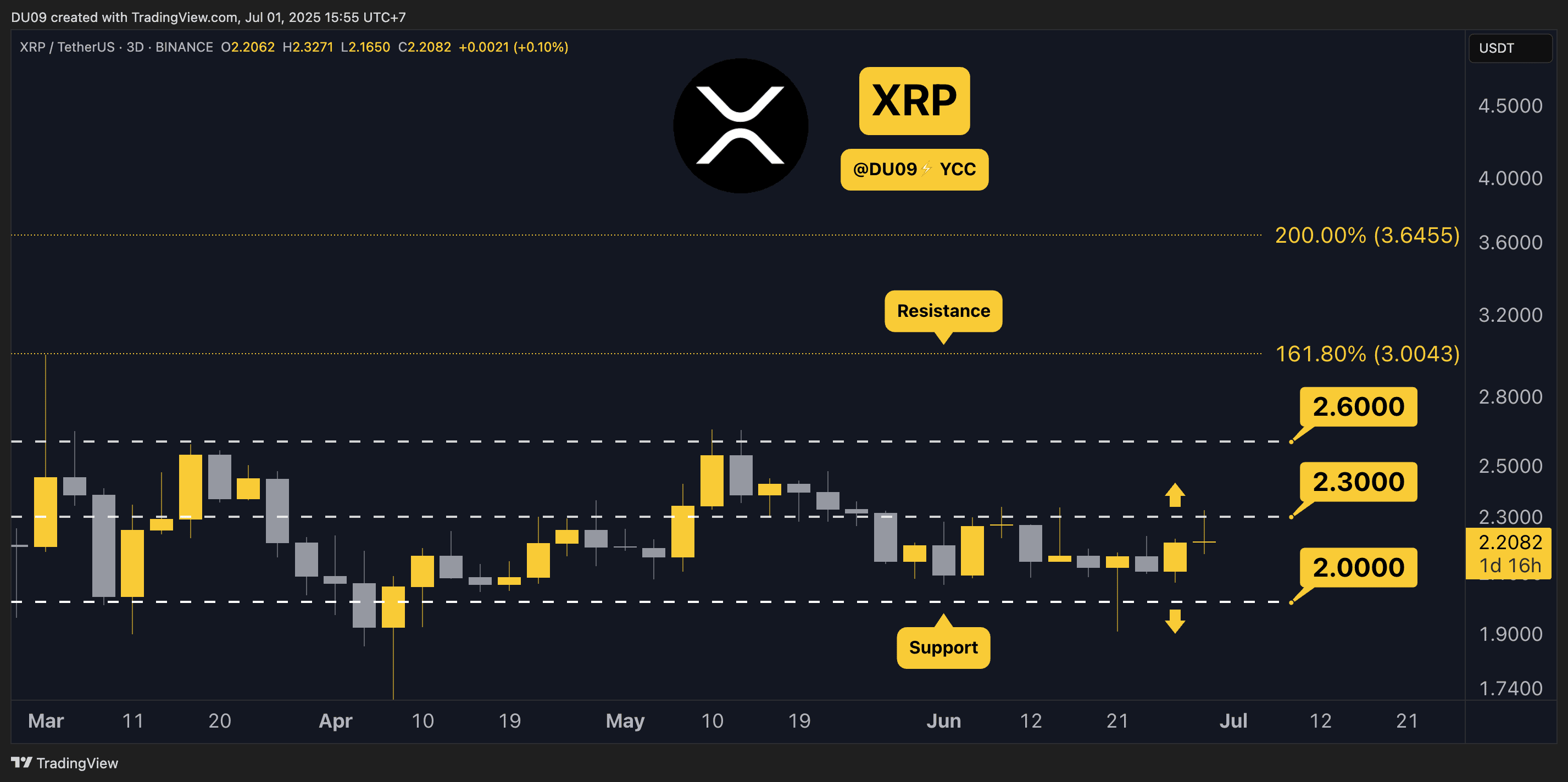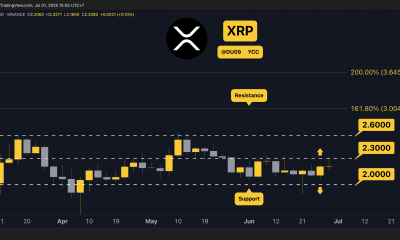Cryptocurrency
Crypto exchanges keep closing: what happens if a crypto exchange goes bust?

A few days ago, Coinjournal presented a report on the number of exchanges that went bankrupt. As it turned out, from 2014 to 2022 at least 42 percent of the platforms stopped working completely and never came back. Over the past four years, the number of bankruptcies has increased significantly. In 2018, 23 exchanges went bankrupt. In 2019, that number increased by 252 percent. In 2020, another 17%. What should users do in this situation? Can you use a cryptocurrency exchange?
In 2021, the number of bankruptcies decreased slightly. But considering the situation now, when the market has been dominated by crypto winter for several months and the forecasts are disappointing, the number of bankrupt platforms will increase again. So before you transfer money, find out, is a crypto exchange legit?
What happens if a crypto exchange goes bankrupt: causes of exchange closures in recent years?
The closure and bankruptcy of cryptocurrency exchanges is caused by a complex of reasons. This leads to site closures; customers can’t withdraw funds, and administration stops communicating with them.
Scam
Exchanges are closed because they are scam projects. A scam is a financial scam aimed at bringing profit only to the organizers of the scheme. A scam is also a deliberate bankruptcy of the company, stopping any payments to the clients. Even though the network indicates a set of signs indicating that the project may be a scam, users still become their victims.
Fraudsters have come up with more and more sophisticated schemes to defraud users. Not infrequently, even experienced investors invest in such exchangers and then cannot return the funds because the sites stop operating. The administration disappears with the looted finances.
Pressure from the regulators
Another reason for the elimination of stock exchanges is the pressure from government regulators. They impose more and more stringent rules to control exchanges. The reason for such increased control is to minimize the risk of criminal use of cryptocurrencies and circumventing sanctions with them.
Recall that in January 2022 in the EU began to work. 5 Directive. It obliges all cryptocurrency companies to verify every client working with digital assets.
Not all exchanges can withstand the pressure and control of state supervisors and regulators.
Exchange hacks
Exchanges are also closing due to being attacked by cybercriminals. It is impossible to predict which exchange will be attacked. Hackers carefully look for vulnerabilities in exchanges’ security systems before hacking. Sometimes attacks result in a large percentage of customer funds being stolen. Exchanges are then unable to reimburse users and shut down.
Incorrect strategy of site development
Incorrect strategy means miscalculations of exchanges’ management, lack of experienced team of marketers, unable to increase the customer base. Because competition in the market is increasing, sites that could not offer exclusive tools for working with assets to customers become outsiders.
The number of transactions on them is reduced; capitalization is falling; customers are leaving for other platforms. Moreover, this can happen even to platforms operating for 5-10 years.
Results
If a crypto exchange goes bankrupt, you probably won’t see your money again. There are a lot of reasons exchanges are closed and stop functioning. Most likely, in 2022, the number of exchanges that will have to close will increase compared to 2021. The long recession in the market, scandals with projects such as Terra, accusations from regulators of illegal trading, hacker attacks, all this does not give cause for optimism.
Cryptocurrency
3 Things to Watch in Ripple’s (XRP) Price Today

XRP is testing the resistance at $2.3. Will it break?
Key Support levels: $2
Key Resistance levels: $2.3, $2.6, $3
1. Key Resistance Under Pressure
Yesterday, buyers pushed XRP to the key resistance at $2.3, but sellers returned to stop a breakout. At the time of this post, the price is in a pullback. Nevertheless, this is a positive sign that shows buyers are returning. If this bullish momentum intensifies, then $2.3 could fall and be followed by a test of $2.6 next.
2. Optimism Returns
With the price keen on making higher highs, optimism is returning to this cryptocurrency. This can be seen on the volume profile where buyers have dominated in the last few days. A break above $2.3 will likely see the volume spike and allow further price expansion into new highs.
3. MACD Turning Bullish
After the daily MACD turned positive last week, the 2-day MACD has also turned bullish today. This shows that the buy momentum is slowly creeping into higher timeframes which will build confidence in the price action and attract more buyers. With a positive feedback loop in action, XRP has a good shot at $2.6 or even higher in July.
Binance Free $600 (CryptoPotato Exclusive): Use this link to register a new account and receive $600 exclusive welcome offer on Binance (full details).
LIMITED OFFER for CryptoPotato readers at Bybit: Use this link to register and open a $500 FREE position on any coin!
Cryptocurrency
Bitcoin Traders Wait Important Economic Announcements Today, These Altcoins Plummet (Market Watch)

Bitcoin’s price has retraced by a slight 0.9% in the past 24 hours as traders are expecting a few important economic events during today’s session.
Meanwhile, the broader cryptocurrency market is also reflecting the uncertainty as the majority of altcoins are trading in the red with some charting a lot bigger declines than others.
Bitcoin Price Waits for News
The deep involvement of corporate Bitcoin buyers and institutions has surely played a major role in its price increase over the past year but it’s also the reason why the crypto market has been largely correlated to traditional ones.
A few years ago, literally nobody cared about metrics such as CPI, PMI, and whatnot, but now every crypto trader has them on their watchlist.
As such, today is also shaping up to be a volatile experience with a few important economic events on the calendar.
First, Jerome Powell will speak in the afternoon, followed by data for job openings, PMI, and ISM manufacturing – all indicators that shape policymaking, especially when gauging the strenght of the local economy.
That said, Bitocin’s price is down about 1% on the day and is currently trading at around $106,500 after having tested $109,000 yesterday. It’s interesting to see if the bulls have it in them to push bakc towards the upper boundary of the recent trading range or if the bears will send the price back below $105K.
Altcoins in Red, Some More Than Others
As you can clearly see in the heatmap below, the altcoins are also not having a great day. This is, perhaps, to be expected – Bitcoin’s dominance over the market has been rising gradually over the past many months and whenever BTC slips, altcoins crash.
The past 24 hours have hardly been a crash, though, but it’s clear that most of them are charting more considerable declines.
This is especially true for TKX, ARB, SPX6900, SEI, and others, that are down between 8% and 15% on the day.
Believe it or not, Bitcoin Cash (BCH) is today’s best performer, gaining more than 6%. Who would have thought?
Binance Free $600 (CryptoPotato Exclusive): Use this link to register a new account and receive $600 exclusive welcome offer on Binance (full details).
LIMITED OFFER for CryptoPotato readers at Bybit: Use this link to register and open a $500 FREE position on any coin!
Disclaimer: Information found on CryptoPotato is those of writers quoted. It does not represent the opinions of CryptoPotato on whether to buy, sell, or hold any investments. You are advised to conduct your own research before making any investment decisions. Use provided information at your own risk. See Disclaimer for more information.
Cryptocurrency charts by TradingView.
Cryptocurrency
How Much You Should Invest in Bitcoin (BTC)? Veteran Trader Peter Brandt Weighs in

TL;DR
- The expert advises monthly investments in SPY and BTC for long-term success.
- The leading cryptocurrency is up 6% this week and trades near $108,000. Analysts are split – some see a breakout to $130K – $200K if key resistance levels are cleared, while others warn of a possible drop to $100K or even $95K if momentum fades.
‘Trading is the Wrong Path’
Besides its fundamentals and ability to transform the global financial system, Bitcoin (BTC) has proven to be an excellent investment opportunity.
At least, that was the case in the past few years: the asset went through multiple bear and bull markets to eventually cross the $100,000 mark. Currently, it trades at around $108,000 (according to CoinGecko’s data), representing a 75% increase on a yearly scale and a substantial 43,000% jump compared to its valuation a decade ago.
But does the leading cryptocurrency remain a good investment after this major rally over the years, and how much should people allocate to it? That’s a question many people are trying to figure out.
It seems that there isn’t a direct answer, and it all depends on the risk profile of the investors, as well as other important factors. However, one can turn to certain experts who are experienced enough to give guidance.
An example is the veteran trader Peter Brandt, who recently suggested that approximately 95% of people fail when trading. Instead, he advised them to excel in their regular jobs, prioritize their families, and invest in homeownership. Last but not least, Brandt recommended making monthly investments, allocating 80% of the amount to SPY (the ETF that tracks the S&P 500 Index) and 20% to BTC.
Trading is the wrong path for 95% of ppl
Most would be better off becoming excellent at a day job (engineer, plumber, welder, vet, sales)
Live economically
Get married, have kids
Buy a twin home – rent out one of them
Invest monthly – 80% in $SPY and 20% in Bitcoin— Peter Brandt (@PeterLBrandt) June 29, 2025
The Next Potential Targets
Let’s now take a closer look at BTC’s recent performance and explore its chances for a further pump in the short term. The asset has increased in value by approximately 6% over the past week, with numerous analysts predicting a surge to a new all-time high if certain conditions are met.
The X user Cipher X believes “a strong weekly close” above $107,720 could open the door to a further rally to as high as $130,000-$135,000 in Q3 2025.
“Just look at Q4 2024 chart and you’ll see what happened when BTC had its biggest weekly close,” they added.
Merlijn The Trader thinks the final pump for this bull run is coming, envisioning a fresh ATH of around $200,000 towards the end of the year. At the same time, he advised investors to take profits, anticipating a drastic pullback to $95,000 shortly after that.
On the contrary, Ali Martinez argued that the cryptocurrency currently faces a key rejection while the stochastic RSI flashes a death cross on the daily chart. The analyst thinks a plunge to $100,000 is not out of the question unless “we get a sustained close” above $109,000.
Binance Free $600 (CryptoPotato Exclusive): Use this link to register a new account and receive $600 exclusive welcome offer on Binance (full details).
LIMITED OFFER for CryptoPotato readers at Bybit: Use this link to register and open a $500 FREE position on any coin!

 Forex3 years ago
Forex3 years agoForex Today: the dollar is gaining strength amid gloomy sentiment at the start of the Fed’s week

 Forex3 years ago
Forex3 years agoUnbiased review of Pocket Option broker

 Forex3 years ago
Forex3 years agoDollar to pound sterling exchange rate today: Pound plummeted to its lowest since 1985

 Forex3 years ago
Forex3 years agoHow is the Australian dollar doing today?

 Cryptocurrency3 years ago
Cryptocurrency3 years agoWhat happened in the crypto market – current events today

 World3 years ago
World3 years agoWhy are modern video games an art form?

 Commodities3 years ago
Commodities3 years agoCopper continues to fall in price on expectations of lower demand in China

 Economy3 years ago
Economy3 years agoCrude oil tankers double in price due to EU anti-Russian sanctions

























